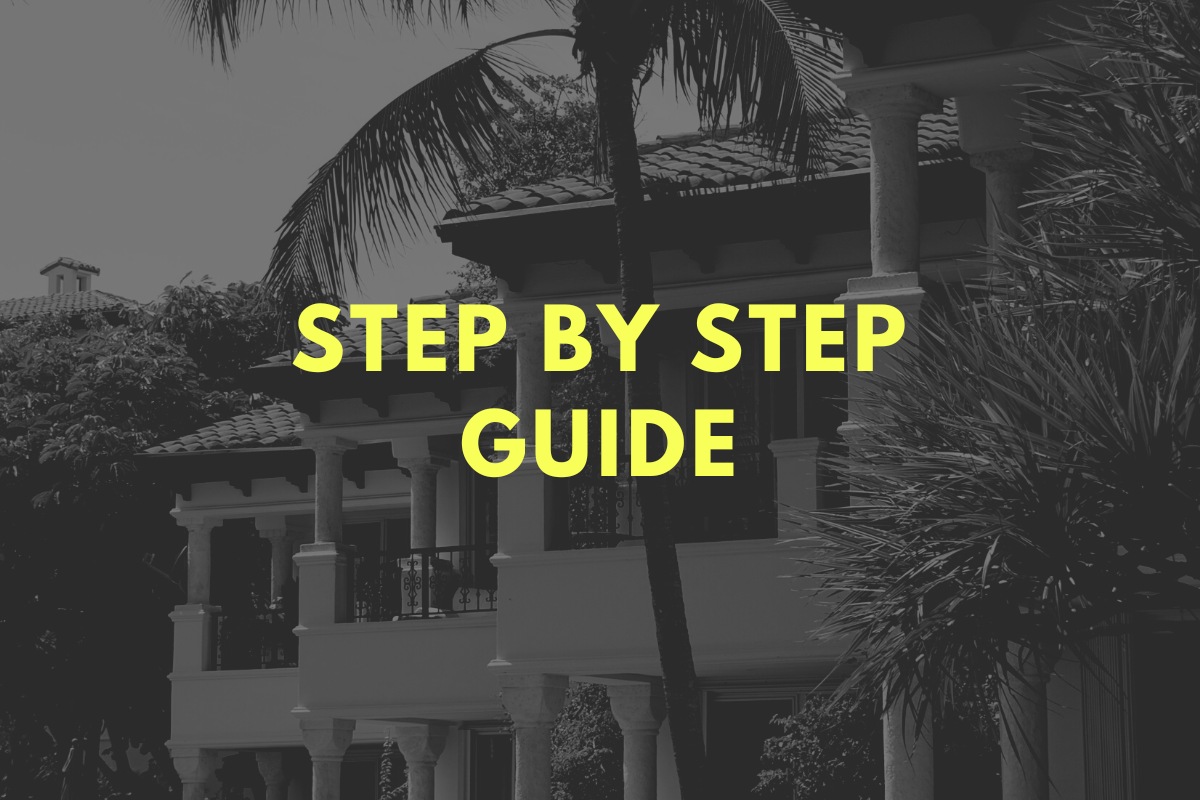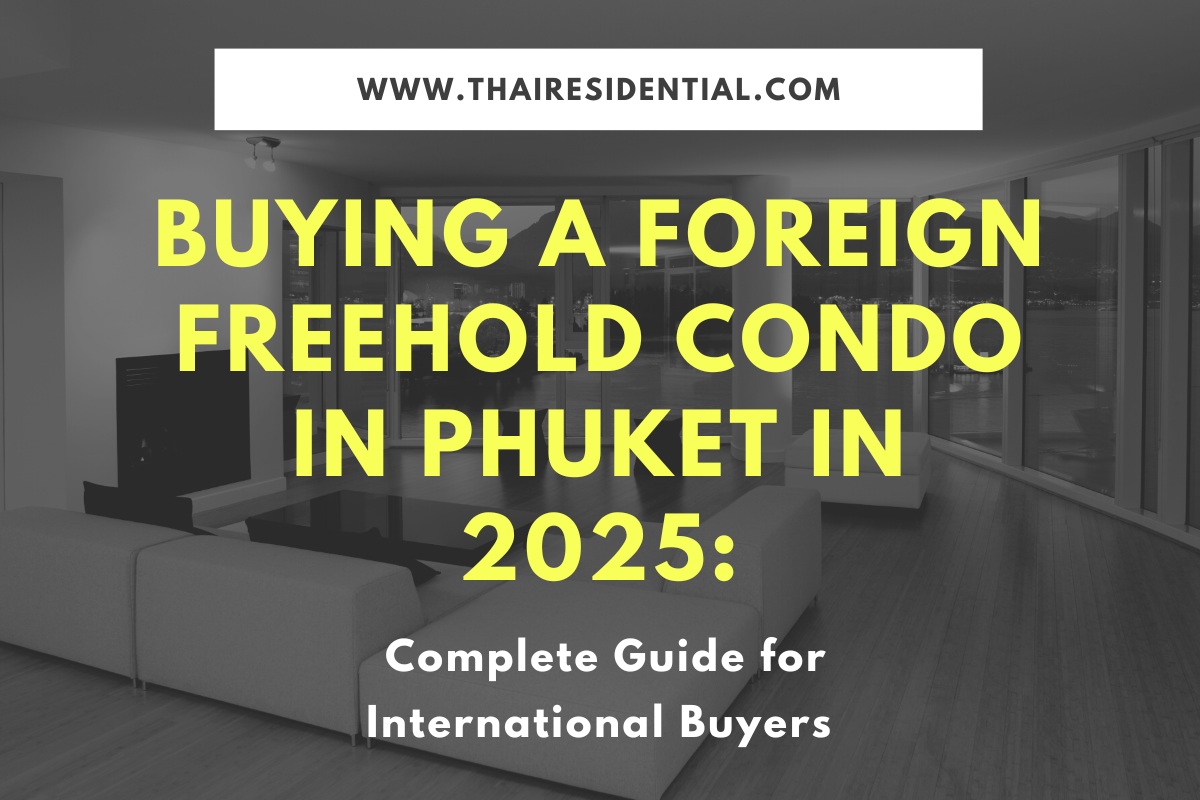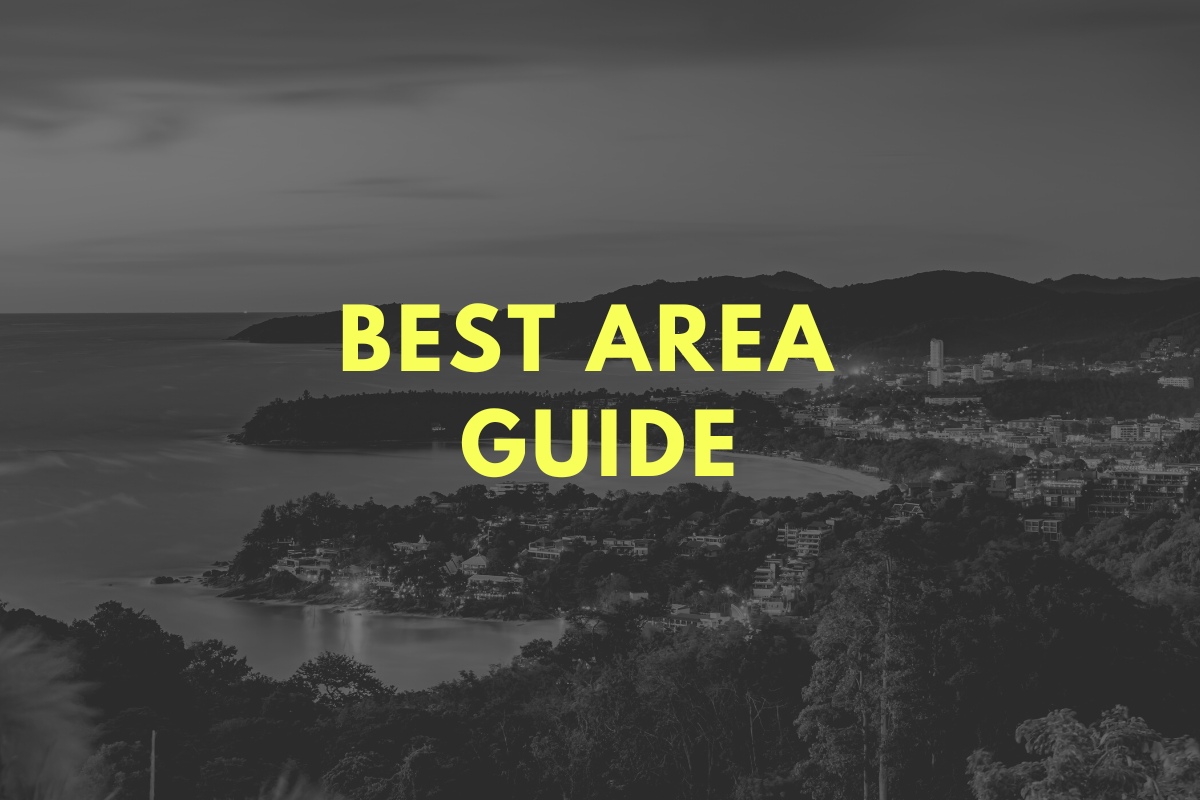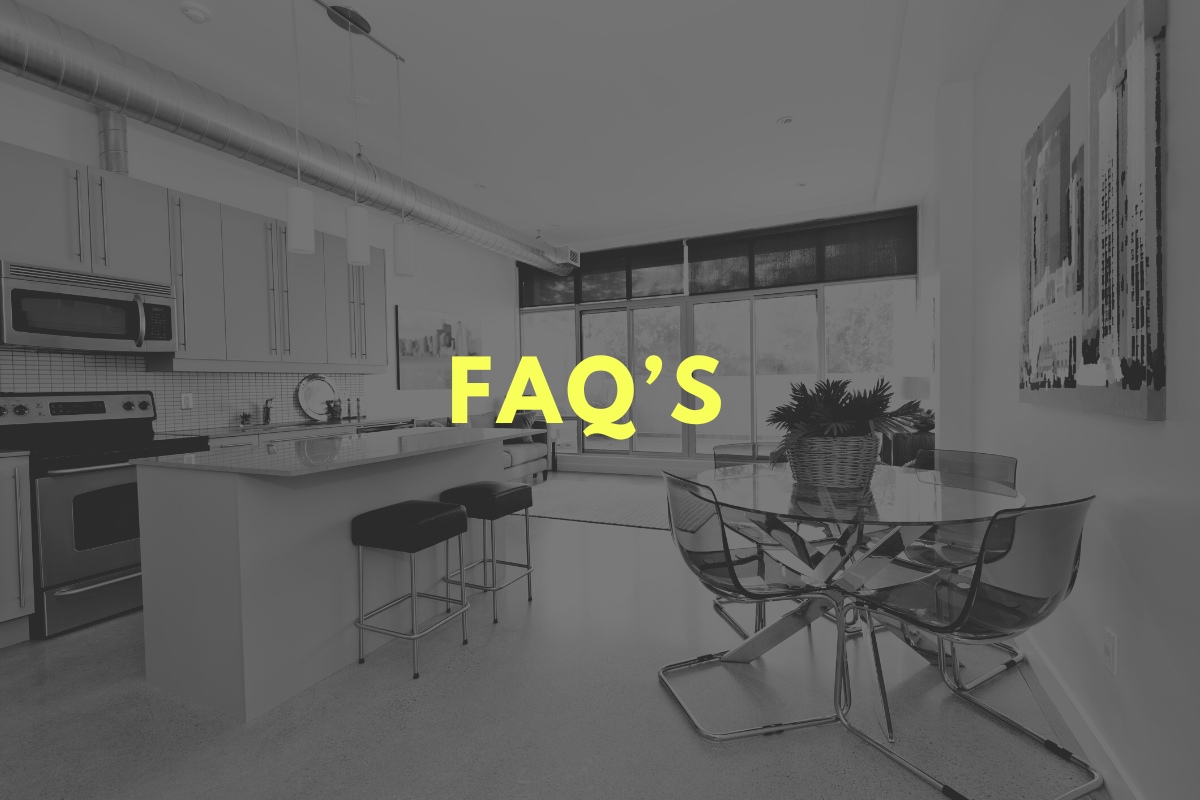Phuket foreign freehold condo ownership remains the clearest, most transparent path for non-Thai citizens to hold property in Thailand. Under the Condominium Act, foreigners may own up to forty-nine percent of the total saleable area within a registered condominium development. This structure is legally recognised, directly title-registered at the Land Office, and fundamentally different from land ownership, which foreigners cannot hold in their own names.
For a full legal explanation of foreign freehold eligibility, structure, and compliance, see our primary reference page within the Phuket Property Guide: Foreign Freehold Condominium Ownership in Phuket.
This guide provides a more detailed, procedural view for foreign buyers, including due-diligence safeguards, required documentation, unit transfer process, and the practical differences between resale, off-plan, and hotel-licensed condominium formats.
What “Foreign Freehold” Really Means in Phuket
A Phuket foreign freehold condo unit is title-registered directly in the buyer’s name at the Land Office. Ownership includes:
-
a Chanote title deed (individual unit title)
-
permanent rights of private ownership
-
a proportional share of the condominium’s common property (land, structure, corridors, gardens, lifts)
This ownership is fundamentally different from land – foreigners may not register land title in their personal name, but they may register condominium title, provided quota remains.
Under Section 19 of the Condominium Act, up to forty-nine percent of the total saleable area in a registered condominium development may be held as foreign freehold. Once this quota is fully allocated, no further foreign freehold titles can be issued within that project.
This quota should always be verified in writing before paying deposits or signing legal commitments.
Legal Framework for Foreign Freehold Condominium Ownership
The Condominium Act B.E. 2522 governs registration, ownership eligibility, transfer procedures, and ongoing condominium governance in Thailand.
Registration and Title
-
the building must be formally registered as a condominium with the Land Office
-
each unit carries an individual Chanote title deed
-
owners also hold rights over the common property through the Condominium Juristic Person (CJP)
Foreign Ownership Quota (49%)
-
quota applies to total saleable area, not number of units
-
quota status should be verified in writing with the juristic person prior to reservation or deposit payments
-
foreign freehold conversion from leasehold is only possible if quota is still available
Funds From Abroad (FETF)
-
funds for freehold acquisition must be remitted from abroad in foreign currency
-
the receiving bank issues a Foreign Exchange Transaction Form (FETF)
-
original FETF documents support title registration and future funds repatriation
By-Laws and Building Rules
-
by-laws define rules regarding pets, works, balcony use, parking, and rental permissions
-
buyers should review by-laws early in the process, as they impact both usability and rental limitations
Step-by-Step Process for Acquiring a Phuket Foreign Freehold Condominium

Each acquisition stage carries distinct documentation and verification requirements. The procedural sequence generally follows:
1) Define Requirements
Determine location, budget, layout preferences, and by-law-sensitive factors (e.g. pets, balcony use, renovation flexibility).
2) Inspect and Compare
Review operational condition, natural light, circulation, build quality, and management performance. Avoid relying solely on marketing renderings.
3) Reservation
Reservation agreements or booking fees should include refund conditions linked to legal due-diligence outcomes and foreign quota availability.
4) Legal Due Diligence
Legal counsel should verify condominium registration, quota availability, developer standing (if off-plan), title clarity, by-laws, and financials (arrears, sinking fund, insurance).
5) Sales and Purchase Agreement (SPA)
Defines consideration, timing, handover condition, inclusions, and the allocation of transfer taxes and fees.
6) Funds From Abroad (FETF)
Funds must be remitted from overseas in foreign currency to obtain the Foreign Exchange Transaction Form supporting title registration and future repatriation.
7) Transfer at the Land Office
Buyer, seller, and juristic person representative attend transfer; government fees are settled; title is issued in the buyer’s name.
Due-Diligence Checklist
The operational condition and financial stability of a condominium project should be evaluated through documentary evidence, not assumptions or marketing claims. Key items include:
-
audited financial statements (last 2-3 years)
-
arrears reports (identify CAM non-payment trends)
-
sinking fund balance vs. upcoming major works (lifts/repaint/roof)
-
building insurance coverage (fire/public liability)
-
maintenance and service contracts (lifts, pools, fire systems)
-
current by-laws (pets, rental rules, balcony use, renovation permissions)
This documentation assists in evaluating long-term operational sustainability and common-area governance.
Costs and Fees Associated with Foreign Freehold Ownership
Foreign freehold condominium ownership involves transfer-stage costs as well as ongoing operational obligations. Typical cost categories include:
Transfer Taxes and Fees
Allocated per the Sales and Purchase Agreement (SPA). For new-builds, a common structure is a 50/50 split between buyer and seller; resale fees can vary depending on holding period and SPA allocation.
Legal Fees
Professional fees are charged either as fixed or ad valorem. Independent legal review is strongly recommended for due-diligence and SPA verification.
Common Area Management (CAM) Fees
Monthly or quarterly charges supporting security, cleaning, utilities for common areas, facility upkeep, and management staffing.
Sinking Fund
A capital reserve contribution for major works (lifts, repainting, waterproofing). In new-builds this is generally paid at handover; in resales, owners inherit the current fund level.
Insurance
Includes the building’s master policy arranged by the CJP, with optional unit-contents insurance at the owner’s discretion.
Utilities
Electricity, water, and internet charges vary depending on whether metering is direct with the utility provider or billed via the building.
Acquisition Formats – Resale, Off-Plan, and Hotel-Licensed Condominiums
Foreign freehold condominium ownership may be obtained through different acquisition paths, each with distinct legal and documentary implications.
Resale Condominiums (Completed Units)
-
title transfer occurs immediately upon settlement
-
physical condition and common-area functionality can be inspected directly
-
management performance and sinking fund discipline can be reviewed in practice
Off-Plan (Developer New Build)
-
staged payment schedules
-
key risks relate to delivery timing, specification adjustments, and developer solvency
-
protective measures include escrow-style payment structures, verification of permits, and confirmation of EIA approvals
Hotel-Licensed Condominiums (Condotels)
-
may legally operate short-term (<30 days) nightly rentals under hotel-licensing
-
revenue models vary by operator and contractual structure
-
buyer use-allocation, wear-and-tear, and service-fee implications should be reviewed carefully
In all scenarios, legal review of project registration, quota availability, SPA terms, and by-law restrictions is essential prior to commitment.
Investment Considerations
Condominium performance in Phuket varies across building type, management quality, location, and regulatory compliance. The key drivers influencing rental returns and long-term capital resilience include:
-
location – proximity to beaches, lifestyle hubs, and open-view vantage points
-
management standards – arrears control, sinking-fund discipline, and building upkeep
-
unit functionality – natural light, ceiling height, layout practicality, ventilation
-
compliance – legality of rental format (hotel licence vs. long-stay restriction)
-
brand credibility – established developers and managed residences often command higher resale liquidity
Well-located, well-managed foreign freehold condos have demonstrated stronger long-term resilience than title-structures reliant on non-compliant rental formats or nominee-based company structures.
What Drives Performance Most?
Several factors determine how well a condominium in Phuket performs in terms of rental income, resale value, and long-term stability.
-
Location and outlook – proximity to beaches, lifestyle hubs, and open views often command higher demand.
-
Building management quality – strong management preserves value and ensures financial stability.
-
Floor plan and layout – light, ceiling height, and storage all affect livability and rental appeal.
-
Compliance – by-laws, hotel licenses, and adherence to regulations are key for rental performance.
-
Developer or brand reputation – credible names add trust, marketability, and resale value.
Areas Where Foreign Freehold Condominiums Are Commonly Found
Foreign freehold condominium supply is concentrated along Phuket’s south and west coasts and in selected inland nodes with established residential infrastructure. Locations vary in terms of community character, price structure, and amenity access, but the following areas consistently support foreign freehold stock:
-
Rawai
-
Nai Harn
-
Kata / Karon
-
Patong
-
Kamala
-
Surin
-
Bang Tao/Laguna
-
Cherng Talay
-
Mai Khao
-
Phuket Town
-
Chalong
Area-level characteristics, such as beach access, school proximity, and build density, influence purchase suitability and long-term maintenance demands. Buyers should align location selection with lifestyle expectations, by-law compatibility (e.g. pets), and preferred usage (long-stay vs. occasional use).
Typical Phuket Foreign Freehold Condo Price Ranges (Per Square Metre)
Indicative 2025 pricing for foreign freehold condominium units varies by area and project specification. The ranges below are provided as non-contractual reference values:
| Area | Resale / Entry-Level | Mid-Range Condos | Luxury Condos |
|---|---|---|---|
| Rawai | THB 70,000 – 95,000 | THB 100,000 – 120,000 | THB 140,000+ |
| Nai Harn | THB 75,000 – 100,000 | THB 110,000 – 130,000 | THB 150,000+ |
| Kata | THB 80,000 – 110,000 | THB 120,000 – 140,000 | THB 160,000+ |
| Patong | THB 85,000 – 115,000 | THB 130,000 – 150,000 | THB 170,000+ |
| Bang Tao / Laguna | THB 100,000 – 130,000 | THB 150,000 – 180,000 | THB 200,000+ |
| Cape Panwa | THB 65,000 – 85,000 | THB 90,000 – 110,000 | THB 130,000+ |
Note: Actual pricing varies according to view corridors, building age, brand, and management quality.
Emerging Product Characteristics (2025)
Recent condominium development in Phuket has shown increased emphasis on usability and long-stay suitability. Common differentiators include:
-
pet-permitted by-laws
-
larger kitchens and storage
-
expanded outdoor space (terraces/private pools)
-
improved ventilation and natural-light planning
-
wellness-oriented shared facilities
-
EV charging and coworking areas
While not universal, these characteristics reflect a general movement toward long-stay, residential-grade design rather than short-duration holiday design.
Compliance Outlook 2025-2030
Regulatory enforcement and governance trends are expected to continue shaping Phuket’s condominium environment over the medium term. Areas influencing compliance clarity include:
-
stronger enforcement against nominee structures and non-transparent holding arrangements
-
increased emphasis on OECD beneficial ownership transparency norms
-
progressive uplift in infrastructure (roads, healthcare, marinas, schools) supporting residential suitability
-
continued bifurcation between hotel-licensed buildings and those restricted to long-stay rental formats
These factors support the long-term viability of legally structured freehold ownership, particularly where governance and sinking-fund discipline are well established.
Essentials Checklist for Phuket Foreign Freehold Condo Ownership
When considering a foreign freehold condo in Phuket, thorough documentation and careful checks at each stage protect both your rights and your investment. The following toolkit summarises the essentials buyers should collect and confirm.
Key Documents and Checks for Phuket Foreign Freehold Condo
-
Written confirmation of foreign ownership quota availability.
-
Debt-free letter from the CJP (for resales).
-
Audited accounts for the past 2–3 years, arrears reports, and sinking fund balances.
-
Building by-laws covering pets, rental rules, and renovations.
-
Service contracts (lifts, fire systems, pool).
-
Current building insurance policy.
-
FETF (keep originals for purchase and eventual resale).
Sales and Purchase Agreement (SPA) Must-Haves
-
Clear payment schedule with penalties for late delivery (for off-plan).
-
Defined defects liability period and repair process.
-
Inclusions list (appliances, furniture, finishes).
-
Agreement on tax and fee split (transfer, stamp duty, SBT, withholding).
-
Confirmation of CAM and sinking fund status at transfer.
Handover Snag Checklist
Common issues to watch for at unit handover include:
-
Balcony waterproofing and drainage.
-
Air conditioning leaks, noise, or incorrect BTU capacity.
-
Water pressure problems in showers.
-
Cabinet alignment and finishing quality.
-
Window and door seals for weather and insects.
-
Paint, grout finishing, and floor lippage.
Risks and Legal Considerations to Understand
Even though foreign freehold condominium ownership is legally recognised, several recurring issues can affect value, compliance, and livability. Buyers should be mindful of:
• foreign quota status – registration cannot proceed if the 49% quota is full
• weak CJP governance – low sinking fund balances or high CAM fee arrears can lead to special levies
• illegal short-term rentals – hotel licence is required for nightly rentals
• developer solvency and delivery risk on off-plan projects
• poor layouts or inadequate natural light – impacts rental appeal and resale
Well-structured documentation, quota verification, and core due diligence steps help avoid most of these issues.
FAQ: Phuket Foreign Freehold Condo Ownership
These are some of the most common questions raised about condominium ownership in Phuket. Each reflects the legal framework, financial obligations, or lifestyle considerations that owners should understand.
Can foreigners really own Phuket foreign freehold condos?
Yes. Up to 49% of the saleable area in a registered condominium project can be owned freehold by foreigners. Always verify quota availability with the CJP or Land Office.
What are CAM fees and how much are they?
Common Area Management (CAM) fees cover the day-to-day operation of the building – security, cleaning, utilities for shared areas, pools, gyms, and landscaping. Rates vary by project quality and size, usually charged per square metre.
What is a sinking fund and when is it paid?
The sinking fund is a capital reserve for major repairs (roofing, repainting, lift replacement). In new builds, it is paid at completion. In resales, you inherit the building’s current fund level.
Can I rent my condo short-term?
Only if the building has a hotel license. Without one, rentals are legally limited to periods of 30 days or more.
How long does the purchase process take?
-
Resales: usually 2-6 weeks, once due diligence and funds are in place.
-
Off-plan: tied to construction completion, with transfer at the Land Office once the project is finished and registered.
Do I need a lawyer?
Yes. A qualified lawyer ensures clean title, quota verification, enforceable contracts, and compliance with Thai law.
What kind of yields are possible?
Rental performance varies by building type, licensing status, and management quality. There is no fixed standardised return, as outcomes depend on each building’s operational structure and compliance status.
What adds the most resale value?
Key factors include views, natural light, well-designed layouts, pet-friendly policies, strong building management, and brand reputation.
Phuket Foreign Freehold Condo Considerations for Buyers in 2025
Owning a Phuket foreign freehold condominium remains the most transparent and clearly defined legal pathway for foreigners seeking registered ownership in Thailand. When the foreign ownership quota is available and title is issued correctly in the buyer’s name, the structure provides direct and recognisable ownership under the Condominium Act.
Clear by-laws, audited accounts, CAM fee discipline, and properly maintained sinking funds all help protect long-term value and community stability. Condominium governance standards, documentation discipline, and quota verification remain central to ensuring secure tenure.
Phuket’s foreign freehold condominium market continues to evolve within a maturing regulatory environment, supported by ongoing transparency initiatives and strengthened oversight of ownership structures. Buyers who approach the process with proper due diligence, documentation checks, and legal guidance are best positioned to benefit from long-term clarity and stability.
Disclaimer: The information contained in this article is provided for general informational purposes only and does not constitute legal, financial, or investment advice. While every effort has been made to ensure accuracy at the time of publication, property laws and regulations in Thailand are subject to change. Readers should always seek independent legal advice from a qualified Thai lawyer before making any property-related decision or transaction.




Social Contact